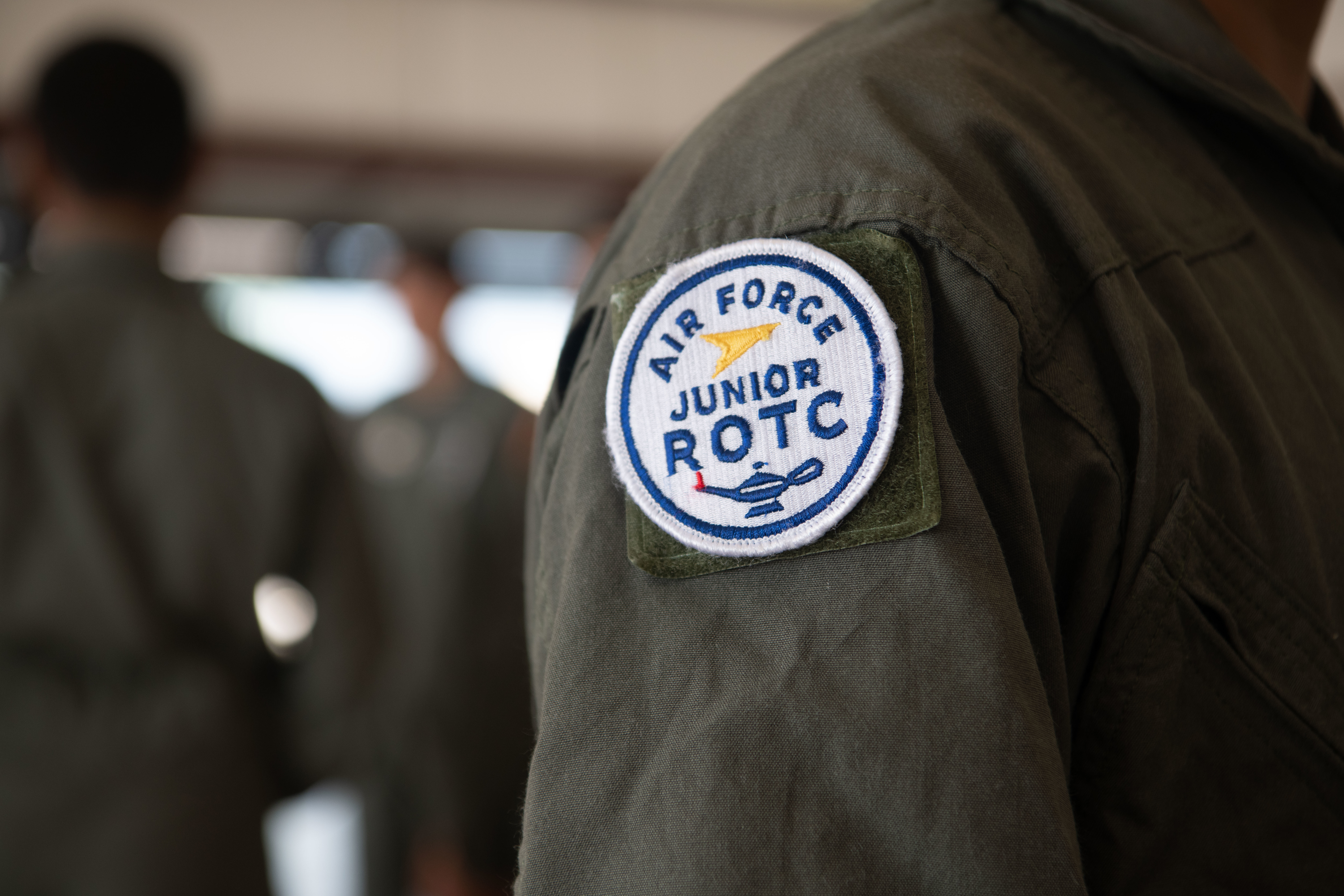Months after a media investigation uncovered dozens of cases of sexual abuse in the Junior Reserve Officers’ Training Corps program, an Air Force official said the department plans to increase oversight, introduce more background checks, and hire more instructors, especially women, to combat the issue.
Assistant Secretary of the Air Force for Manpower and Reserve Affairs Alex Wagner detailed the planned changes in a hearing before the House Committee on Oversight and Reform on Nov. 16—but faced some pushback from a lawmaker who questioned whether the department could have moved faster.
The hearing, which also featured the assistant secretaries for manpower and reserve affairs from the Army, Navy, and Defense Department, was called in response to reporting from The New York Times, which detailed cases of instructors sexually abusing teenagers in the JROTC program. In the past five years, the newspaper found, at least 33 instructors have been criminally charged with sexual misconduct involving students.
That reporting sparked a congressional investigation and led to Pentagon officials admitting in a September hearing before the Senate Armed Services Committee that additional oversight was needed.
“There’s very little oversight in the Air Force right now,” Lt. Gen. Caroline Miller, deputy chief of staff for manpower, personnel, and services, said at the time.
In a prepared statement and in testimony before the House Oversight Committee, Wagner also acknowledged that more can be done.
“Given the incidents of misconduct identified and our own review, it is clear the Department of the Air Force must do more to prevent this type of misconduct from occurring at any of our JROTC units,” Wagner said.
Wagner outlined in his statement some of what the Air Force plans to do, starting with improved oversight from Air Force JROTC Headquarters.
At the moment, AFJROTC Headquarters has only nine regional directors responsible for overseeing 870 units across the country, for a ratio of roughly 97 to 1.
This “only enables on-site evaluations approximately every three years … [and] impacts HQ AFJROTC’s ability to maintain effective oversight and engage with partner schools and their AFJROTC units,” Wagner wrote in his statement to the committee.
Moving forward, the plan is to reduce that ratio to 30 to 1, allowing annual evaluations of every unit.
In addition, the Air Force wants to hire more instructors for units, after an internal review found that 18.5 percent of units have only one instructor instead of the standard two.
“AFROTC data demonstrates that single instructor units tend to experience more negative incidents than those that are fully manned,” Wagner wrote, noting that half of all known arrests in AFJROTC are within units with only one instructor.
The department also wants to be more deliberate in who it hires as instructors. At the moment, more than 90 percent of AFJROTC instructors are men, despite the AFJROTC cadet corps being 40 percent female.
“We’ve got the wrong balance, and I think aligning that gender disparity better will have a significant impact on this program,” Wagner told lawmakers. “One of the key questions and concerns of this committee is that cadets feel like they have nowhere to turn. … One hundred percent, by the way, of the victims are female, and 100 percent in the Air Force of the perpetrators were male.”
When pushed by Rep. Chrissy Houlahan (D-Penn.) on how exactly the Air Force will address that gender disparity, Wagner indicated that an implementation plan for proposed changes is coming soon.
“Tomorrow, I’m flying down to Air Force Junior ROTC headquarters” at Maxwell Air Force Base, Ala., Wagner said. “And we’re going to work on a plan. I’ve asked them to come up with ideas. I’m going to help them shape and sharpen that plan. I think this will have an immediate, tangible impact on the safety of Cadets in this program.”
One change that will go into effect in early 2023 will be the use of Child Care National Agency Check and Inquiries (CNACI) background investigations for all instructors, scheduled to be implemented across AFJROTC by April.
“All Air Force ROTC instructors have a military records check which is a comprehensive review of a 20-year military career in which an instructor was conclusively discharged honorably,” Wagner said. “We are now adopting this background check, which is the gold standard used by schools across the country and the Army, which includes … an FBI background check as part of it. This is the national agency check, prior to any instructor eligibility for certification. Then, once a certified and eligible instructor is hired by a local school, then they undergo that local school’s individual background check, which is done in the same way that they would perform for any other instructor.”
But Wagner faced criticism from Rep. Debbie Wasserman Schultz (D-Fla.), who noted that the Army began using CNACI background checks six years ago for JROTC instructors and questioned why the Air Force hadn’t started using it earlier.
“We are learning our best practices from some of the policies and procedures the Army has put into place. We are aggressively moving forward to implement that check,” Wagner replied.
But Wasserman Schultz appeared unimpressed, later saying that it is “really troubling that so many bad actors appear to have slipped through the JROTC vetting process.”


